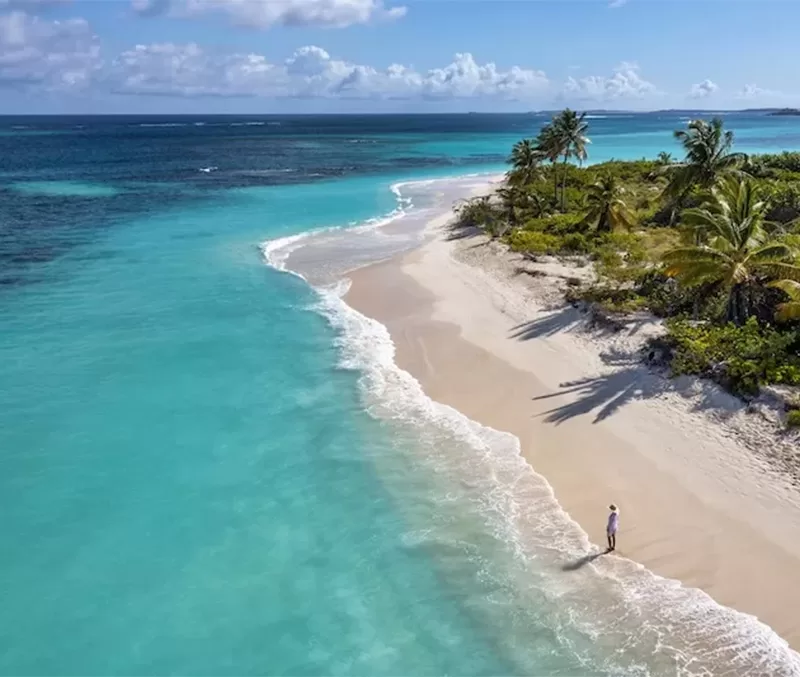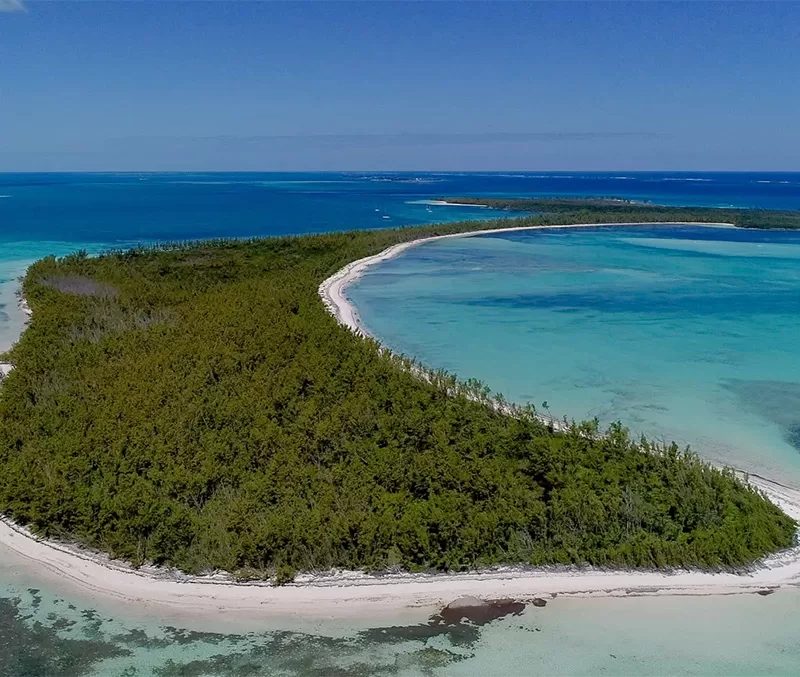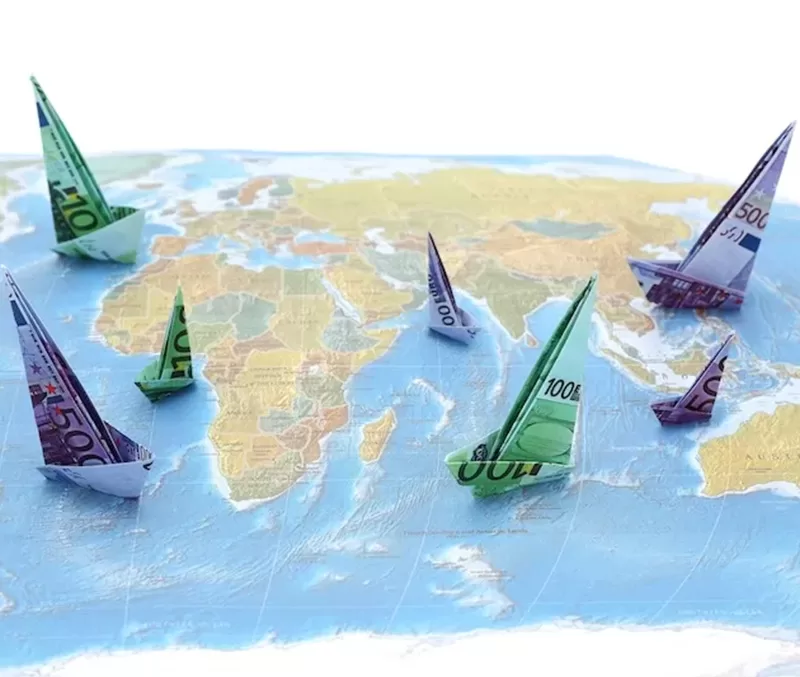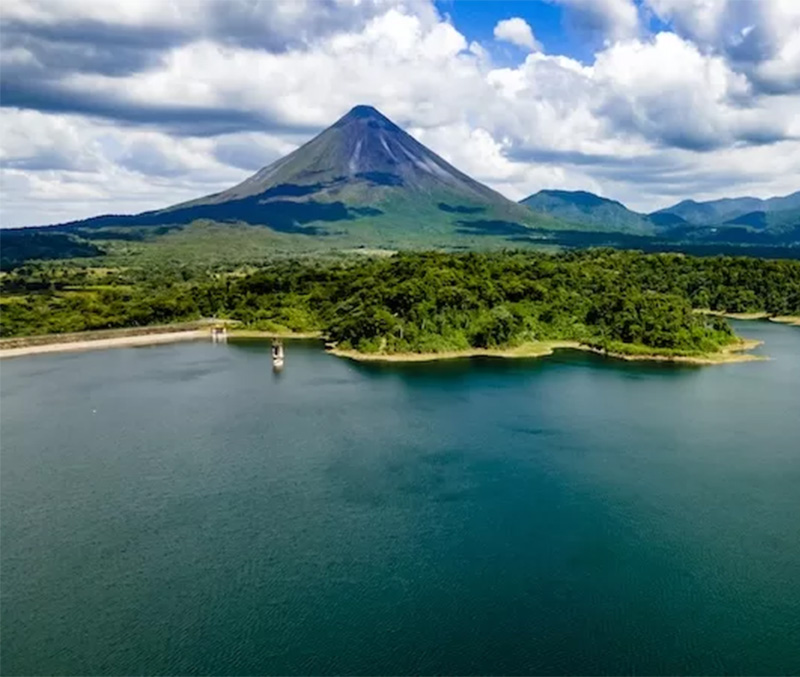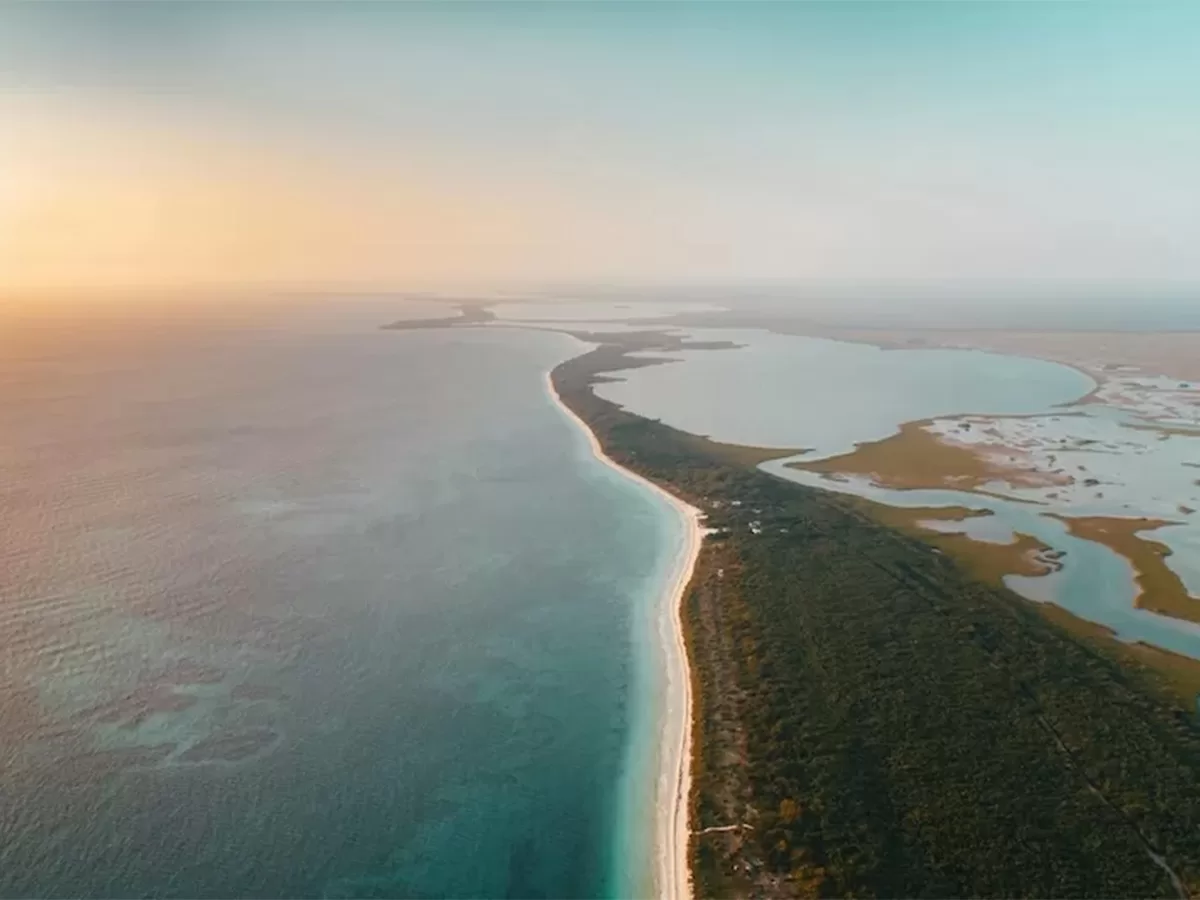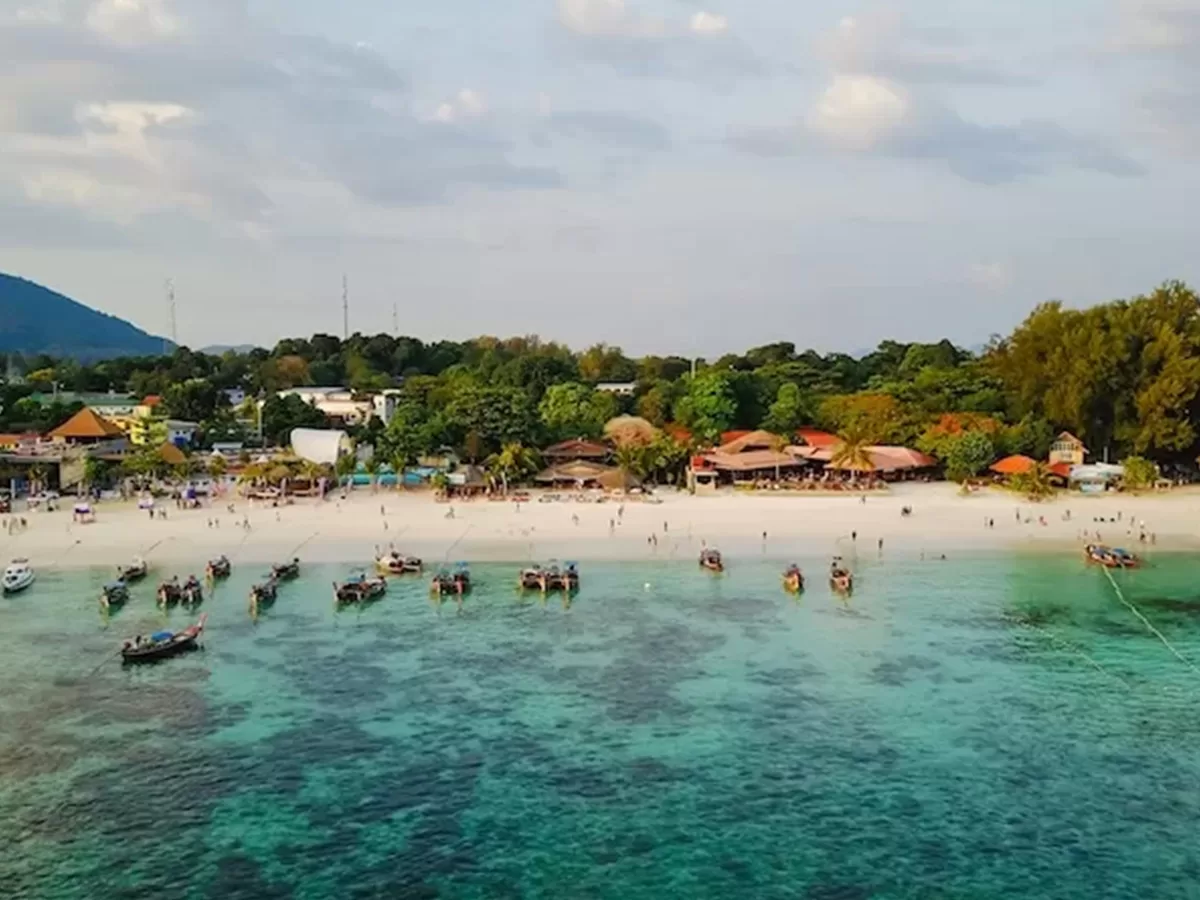Executive Nomads Would Be Wise to Look Offshore
6 reasons why it’s the optimal route to financial freedom

In today’s global economy, a dynamic new group of influential professionals has emerged in recent years. They operate across borders, embracing the freedom of mobility and impacting multiple economies while managing major businesses, significant wealth, and diverse investments.
I’m talking of executive nomads, a growing demographic of C-suite leaders and entrepreneurs who have embraced the globe-hopping lifestyle that has become increasingly popular since the COVID-19 pandemic.
Like the coders and content creators known as digital nomads, these executives and high-net-worth individuals have chosen to swap the office for a more mobile and adventurous lifestyle. Their workspaces span continents. They might live on a Caribbean beach one month, in a Dubai penthouse the next, and in the French Alps the next.
For executive nomads, flexibility is key, which is why offshore is a great banking fit. Many define “offshore banking” as having a bank account with a financial institution not based in the county in which you live. But for nomads, who have no long-term country of residence, this definition is rather problematic.
Thus, in this article “offshore banking” refers to the use of banks that operate under an international banking license, which is often called an offshore license and generally bars the bank from business activities in its own jurisdiction.
Read More on Executive Nomads
Many offshore banks are literally offshore, in island states like the Cayman Islands or the Bahamas, while others are on terra firma, in countries like Switzerland and Luxembourg. Decades ago, many offshore banks were used for money laundering and hiding undeclared income, mainly thanks to minimal taxation, strong privacy barriers and financial stability within offshore jurisdictions.
But the post-9/11 crackdown on terrorist and criminal financial networks has made the global financial system—and particularly offshore banks—much more transparent and reliable. This is why I’m now able to recommend them, particularly for the reasons outlined below.
1. Global Financial Access and Mobility
For executive nomads, geographical boundaries are unimportant, and financial operations should mirror this fluidity. Offshore banks offers global financial access, a crucial advantage for mobile professionals who deal in multiple currencies and often make cross-border transfers.
In addition, whether the executive is in Singapore, London, or South America, an offshore account ensures they can transfer, invest, and access their wealth without the geographical limitations of many traditional banks.
Read More on Benefits of Offshore Banking
2. Tax Efficiency and Financial Optimization
Offshore jurisdictions like the Cayman Islands and Switzerland tend to have lower tax rates, capital gains exemptions, and favorable inheritance tax laws. Although your home country’s tax body likely still expects you to report your new offshore account, opening such an account should reduce your tax burden and improve financial planning, leading to substantial savings.
Furthermore, an offshore account allows for more sophisticated tax planning strategies, enabling individuals to structure their finances in ways that align with their global lifestyle. While tax laws vary by jurisdiction, working with legal and financial advisors who specialize in offshore structures can help executive nomads navigate the complexities and ensure compliance with international regulations.
3. Privacy and Asset Protection
Executives, especially those with significant wealth or business interests, cherish their privacy. Offshore banking provides a level of confidentiality that’s rare at traditional banks. Many offshore jurisdictions protect the identity and financial details of banking clients. For executive nomads who operate across multiple countries, this privacy can be invaluable in shielding assets from public scrutiny or potential business competitors.
“Offshore banks are often located in countries with highly strict banking secrecy laws, which offer more confidentiality and privacy to their clients’ identities and money,” says Robert Siciliano, CEO of cyber security firm Protect Now.
Asset protection is another vital consideration. Offshore banks safeguard personal wealth against risks such as political instability, economic downturns, and litigation back home. By diversifying assets across multiple jurisdictions, executive nomads can ensure that their wealth is protected and insulated from localized risks. Offshore banks are often located in politically and economically stable countries, adding an extra layer of security.
4. Enhanced Investment Opportunities
Offshore banking opens up a world of new investment opportunities. For executives involved in international business ventures, offshore banks can provide greater access to global markets, investment funds, and products created for high-net-worth individuals.
Many offshore banks have relationships with wealth management firms, allowing clients to invest in international stocks, bonds, mutual funds, and real estate. This international scope is particularly beneficial for executive nomads looking to diversify across markets and sectors.
Investment diversification is crucial for executive nomads seeking to balance risk across jurisdictions and asset classes. Whether it’s investing in a burgeoning tech company in Silicon Valley or acquiring real estate in Europe, offshore banking allows executive nomads to act swiftly and take advantage of global investment opportunities.
5. Estate Planning and Wealth Succession
For executive nomads, it’s crucial to ensure that their wealth is passed on to future generations in a tax-efficient manner. Offshore banks specialize in estate planning and wealth succession, providing a range of services that help preserve and transfer wealth according to the client’s wishes.
By banking offshore, executive nomads can establish trusts or foundations in jurisdictions that offer favorable estate planning laws.
These structures offer flexibility in how and when assets are distributed to beneficiaries. This helps avoid potential legal complications and excessive taxation. Offshore jurisdictions are known for their stability and reliability, ensuring the integrity of these structures. This provides peace of mind for executive nomads seeking to secure their family’s financial future.
6. Currency Stability and Inflation Protection
Executive nomads tend to work in multiple currencies and financial systems, which present challenges in terms of fluctuations and inflation. Offshore banking ensures reliable access to stable currencies, a hedge against inflation risk. Offshore accounts typically allow clients to maintain their assets in stable currencies such as the U.S. dollar, Euro, or Swiss franc.
This is especially important for executives who work in regions with unstable economies or high inflation rates. By banking offshore, they can protect their wealth from currency devaluation and ensure that their purchasing power remains intact, regardless of where they are operating.
The Best Banking for the Mobile Executive
Offshore banking is more than just a financial service—it’s a tool that aligns with the mobile executive lifestyle. Unparalleled access to international markets, tax efficiency, privacy, and asset protection together make it a key component of a well-rounded financial strategy.
With the right offshore banking partner, executive nomads can safeguard their wealth while taking advantage of global opportunities. This approach allows them to keep their financial operations flexible and dynamic, just like their lifestyles. In our increasingly interconnected world, where borders no longer limit where one lives and works, offshore banking offers an optimal route to financial freedom and access.
——–——–
Luigi Wewege is the CEO of award-winning, Belize-based Caye International Bank and co-author of The Digital Banking Revolution, now in its 3rd edition.
Luigi Wewege






